|
Photos from our Women Write Music recital on June 4, 2016. All photos by Alice Grabowski of Blue Green Photos. In the wake of several high profile news stories in the last few months, I've been thinking a lot about how I treat my violin students and how I can work to avoid imprinting traditional gendered beliefs on my students as well as to build genuine self-esteem that's not based on appearance.
Something I've learned in the last three years of teaching is this: kids are really freaking cute. I've also learned that kids can do pretty much anything you ask them to if you present it in the right way and make them practice it. And it absolutely drives me insane when the first thing someone comments on is the appearance of one of my students, especially right after they've just performed. No, my student isn't going to play well because they're "so adorable" and "have such a sweet smile." They're going to play well because they've practiced 45 minutes a day for the last six months and because they work hard at the violin. It has nothing to do with the adorable Elsa dress they're wearing. So, in no particular order, here are some of the ways I try to build self-confidence based on musical skill and to not focus on appearance as related to gender in my studio: 1. Always link success to effort. I always make sure I mention how hard the student is working and point out the accomplishment of concrete technical and musical goals to them, especially after a performance. I avoid saying things like "Oh, you're so talented," and try to say things like "I know you worked so hard, and because of that, your fourth fingers were so beautiful!" or "It made me happy to hear how big your sound was when you went all the way to the frog." 2. Avoid gendered pronouns when discussing dress codes. My dress code for recitals reads something like this: "Students should wear a nice shirt and dress pants, or a skirt or dress that is knee length or longer. Dress shoes should be worn. No t-shirts, jeans, athletic wear, ripped clothing, or tennis shoes. Avoid bows, sequins, ruffles, or other accessories around the neckline that may interfere with the playing of the instrument. Hair should be styled away from the face." If a female student wants to wear a suit, that's great, as long as she can play in it. If a male student chose to wore a skirt or dress, that would be okay too, as long as it was knee-length and he could play in it. 3. Comment on clothing or hairstyle as a reflection of personality. "That X-Wing t-shirt is awesome. Does it come in adult sizes?" "I love how colorful your skirt is - it's so fun!" "Oh, wow, your hair is purple now! What a fun change for summer!" I try to avoid saying things like "That's so pretty," especially to the girls. 4. Incorporate the music of female composers into the repertoire. www.violinmusicbywomen.com. That is all. 5. When teaching the work of female composers, make sure you say "she" when talking about the composer's intentions. Just hearing composers referred to as both "she" and "he" will help students grow up in a world where these works are equal. 6. Teach the principles of consent at an early age. One of the things I do in early violin lessons is draw a "Magic X" on a student's hand to help them place the left hand on the instrument. I ask "Is it okay if I draw on you?" and have a plan for an "Invisible Magic X" in place if the student says no. I also try to monitor how they behave with each other, especially as my students have formed friendships. In one recent incident, a student said "I'm going to go tell the next student they can come in and I'm going to tickle them!" I immediately said, "No, you need to pack up your violin first. Then you can go ask them politely if you can tickle them and if they say no, that's the end of it." The student packed up their violin, went in the hall, and said "Can I tickle you?" The next student said, "No!" Student #1 said, "Okay," and that was the end of that. 7. Acknowledge that playing the violin is hard. As my students progress, we've had many moments in lessons lately where a student will stop and look at me and say, "But this is hard!" I look at them with a straight face and say, "Yes. Violin is hard. And when we practice, we become really good at doing hard things!" I don't lie to them about violin becoming "easy" at some magical point in the future (if it does become easy, I haven't gotten to that place in my own playing yet...). Instead, I acknowledge that what we're trying to do is really hard, I affirm that I believe that the student has what it takes to be able to do it, and then I give them steps to follow to be able to do it. I have a lot of thoughts and feelings in my head and heart, which I'm sure will come out in blog form sooner or later. But until then...
For an audio version of this post, press play below. At the beginning of 2015, I didn't make any New Year's resolutions. Instead, I made a promise to myself: "Honor your artistry." I wrote it on my white board and looked at it every day.
You see, for years, I desperately wanted to be good at the violin. I wanted to succeed. I wanted to have the status of being good, but I now see that I didn't have a clue what that actually meant. This new mantra was a huge departure from my old ways of thinking. It meant that instead of freaking out about what chair I was in orchestra, and who was playing more advanced repertoire than me, I actually had to listen to my sound, and produce something meaningful. After an eventful year including orchestra auditions, learning video game music by ear, playing a gig that was almost completely improvised, and a whole lot of Kreutzer etudes, I arrived at a place where my technique and my musical imagination were beginning to merge. I felt, in short, like an artist. Of course, once you accept the universe's call to be an artist, that does not mean you have arrived. For me, it meant that I no longer had the excuse of "Oh, I have so many tension problems in my playing..." "My teacher just completely redid my technique and it feels weird..." "I need to completely change my setup to play well..." While these excuses were valid at various points in my life, they certainly weren't relevant anymore. Stepping up and accepting responsibility as an artist meant finding a way, no matter what, to have a higher goal than just playing the notes right. Being good at the violin didn't concern me anymore. Figuring out what I wanted to say, and how I wanted to say it, was my new priority. I am learning, over and over again, that music enables us to transcend our circumstances. If there's one thing 2016 has taught me so far, it's that being an artist means being an artist every time I play my violin. It doesn't mean being an artist only on the days when I've done the perfect exercise routine, eaten the perfect healthy meal, and had a great night's sleep. It means that every time I touch my instrument, I have to be able and willing to make something special happen. To say something meaningful. To connect with the audience, to say something without words that maybe I need to hear even more than the audience does. The first month of 2016 immediately tested the strength of my new artistic commitment. Was I really able to perform, even when I felt like it the least? Two weeks before a solo recital that I had scheduled, my uncle died. The choice to travel to attend his funeral was an easy one, even though it meant postponing the recital. I had been looking forward to this recital - it was my first solo performance in months and my first true attempt at bringing authentic emotionality to repertoire that was technically accessible for me. I'd scheduled the recital carefully, so that I would still be rested from winter vacation, before the busyness of my teaching schedule kicked in. Playing a recital when coming off a two week holiday, where you have slept well, relaxed with family, and had all the practice time you need, is very different than ... the experience I had. I got back to work the week after the funeral, and was disoriented and sad. Finding my "professional mode" for my students took more energy than normal. But, the recital happened. I somehow managed to conjure the various characters I had spent so much time creating, and I had the strange experience of listening to the recordings afterwards and loving my own sound, perhaps for the first time in my seventeen year relationship with the violin. The next week, my apartment building almost burned down. It was a surreal experience. I woke up in the middle of the night to the smell of smoke, the sound of alarms going off, and firemen banging on the door, telling me and my roommates to leave the building. I learned that the first thing I grab when the building is on fire is, in fact, my violin. I climbed off our second story balcony with my roommate to escape the building, since the hall was full of smoke. I was functional in the moment, able to think clearly - but the next day I saw a video of the fire, and I freaked out. I couldn't believe that I had been asleep in the building when the video was taken. I was happy to be alive, grateful my home was unharmed, but shaky and not able to sleep well for the next week. Four days after the fire was the quartet concert I'd been looking forward to for months. I'd written the grant, practiced my part, and rehearsed with my colleagues. Playing in a string quartet is one of my absolute favorite things to do. I love being inside the music, the deep sense of connection with the other musicians, and the spectacular repertoire written for four string players. But, I felt like crap. I had had to teach for eight hours during the day, both my regular classes and make-up lessons from the day I missed to go to the funeral. Two hours before we were supposed to walk on stage, I was curled in a ball, exhausted but unable to sleep, completely drained. I knew I somehow needed to summon the emotional energy that the music would demand from me, that my colleagues and the audience deserved, and that I wanted to be able to give. Once again, connecting to the music, and committing to do whatever I needed to do to create the sound I wanted, saved me. My chamber partners' passion and performances helped give me the energy I needed to give the music. The audience loved it, and it was a great performance. During a concert, the audience doesn't know - and frankly, it's none of their business - what's going on in your personal life. (Although, I suppose any of you who have been in the audience this past year know what's been going on with me now...) When I walk onstage, not feeling my best or having a bad day doesn't give me permission to play with less passion, with less energy, or as if I'm only interested in getting through the performance so I can go home. That's not how performance works. In the moment, the music has to be more important than anything. I am fortunate to be friends with and know the stories of many professional musicians. On the friend level, I know just how tired and stressed they are. I know that they're juggling teaching careers, multiple performances, and caring for their families. As someone who sits in the audience at their performances, I am blown away by the music they create. This is a lesson my students are learning, too. Through a series of unfortunate scheduling events (also known as the fact that I didn't realize I needed to check the SAT testing schedule when choosing recital dates), I've had three teenage students have to perform in studio recitals after taking the SAT. They spent the morning taking the test and then came directly to the recital. I was so proud of them for fully committing to their performances, and for how beautifully they played, even when I knew they had to be physically and mentally spent. Some of my younger students, as well, are already committed to making music despite their circumstances. Those of you who frequent the blog have read Lindsey's tale of finding creative ways to practice even after breaking her bow arm. Another of my students performed in a recital while ill and with a fever. I had been noticing her smooth tone, her strong memory, and how much improvement she'd made over the past few months. It wasn't until I talked to her and her parents afterwards that I found out she wasn't well. I'm sure that there are more stories that I don't know, too. It may sound as if music is all-consuming, all-demanding, and completely uncaring about the people who create it. I'll be honest - it feels that way a lot of the time. But the moment I step onstage, the moment I find myself inside my sound and let the music take over, I have energy that wasn't there before. I find the courage to stand in front of the audience, exactly as I am, far from perfect but willing to express myself through all the means at my disposal. And I have found that loving music has given me far more than it has taken from me. Sometimes the most valuable lessons are the ones that it's the least fun to learn. I could not have written this blog post six months ago. What I can do now with my instrument is beyond anything I ever imagined when my only goal was to be good at the violin. I am new to this whole 'artist' thing, but I am excited and curious to see what the future brings. And most of all, I am grateful that music has pushed me beyond my technical limitations, helped me find emotions and feelings when I feel empty inside and enabled me to rise above both the big and little things in life to create meaningful art in the world. 'Twas the week before spring break, and worried was I
The week would be wasted, since vacation was nigh My students had played a recital, 'twas true But in violin lessons, we needed SOMETHING to do. In true Ms. Claire-style, I fashioned a plan. "Teach me a violin lesson? Let's see if they can!" (No, I'm not writing this whole blog post in verse. I started typing, and then I started rhyming and just went with it...) My studio had a weird two weeks to get through last month - we'd just performed a recital and had two weeks until spring break. I knew I needed to come up with something to keep my students engaged and learning so that their lessons were meaningful. So, I told them that the last 10 minutes of their lesson would be them teaching ME a lesson on one of their pieces before break. Some of them were really excited. Some were terrified. All of them were pretty psyched that they got to sit down during their lesson - not just sit down, but in the teacher's special chair. Here are some of the great things that happened when we turned the tables and when I had my students be the teacher: My youngest student, aged 4, made me get down on my knees so that he could reach my left hand fingers. He guided me through playing an A Major scale by putting my fingers down in the right place on the violin and making sure they were curved. One of my first graders, who is playing Witches' Dance, chose to give me a lesson as if it was my first time on Witches' Dance. She sat in my chair with her violin, and taught it to me phrase by phrase. She broke the piece down into small, easily learned phrases, and explained to me how to do the bow stroke properly. I was amazed to see how well she really understood the musical structure AND the different technical elements in the piece. I have a fourth grader who has a fantastic ear but has struggled to have beautiful violin posture. She chose to have me play her piece while making mistakes and identify them. This one was hard for me - I tried to imitate the things she does when she plays as closely as possible. The look of surprise on her face was priceless. She stopped me before I was more than a few measures into the piece. "Your feet! They're not balanced!" A few measures later, she stopped me again. "You have a pancake hand!" And just a little later..."And your bow hold keeps creeping up!" It was great to see her awareness change! And finally, for a student who is a senior in high school, I played her piece and played it with a nice sound, but without a lot of expression. She worked with me on creating more dynamics and contrast in the piece. I asked her this past week whether or not her experience being the teacher had changed how she practices. "Yes," she said. "I realized that I couldn't ask you to do something and then not do it myself." And so with a grin I went back to my chair Amazed at how my students had become more aware. Until my next crazy idea, I bid you adieu And suggest you see what happens when the teacher...is you. Comparison is human nature, and the temptation to compare ourselves to others is particularly strong in Violin World. A lot of people play the violin. A lot of people play the violin really, really well. And learning to cope with this fact is something that every violinist has to confront at some point in their career.
Ignatian spirituality has a saying: "Compare and despair." When we compare ourselves to someone else, we will inevitably end up depressed. Because the thing is, we're not comparing ourselves to the other person. We're comparing ourselves to our idealized image of that other person. And that's something that no one can live up to. I've seen this in my violin studio over the last few months. I've seen students terrified to play out because they hear other students who they think are better than them. I've seen parents who are discouraged because another child is playing better than theirs. And it breaks my heart. I adore all my students, for exactly who they are. Whenever someone says to me, "So-and-So plays SO AMAZINGLY IN TUNE, it seems so easy for them!" I realize that yes, they saw So-and-So play at the recital, and yes, So-and-So had wonderful intonation. What they didn't see was the previous two years of lessons with me, where I changed everything about their violin technique, made them play hours and hours of scales, and insisted that they do it over and over again. "Tall violin. Do it again. Check your Magic X. Do it again. No, that's a 4th finger. Do it again." Two years of that resulted in So-and-So being able to play their advanced piece really well in tune. Believe me, no one is born with perfect intonation. We ALL work on it. For those for whom intonation is a little more intuitive, they have their own share of challenges (AHEM, bow hold, anyone?) I've had beginning students look at other students their own age and feel despondent because they didn't start younger. It's unfair to compare a violinist who has been playing six months to a violinist who has been playing for four years. As someone who started at the age of 9 in my public school orchestra, I think I spent at least the first 10 years of life as a violinist upset because I didn't start as a 4-year-old prodigy. As a teacher, I see that beginners of every age have their own advantages and challenges. Violin isn't easy, for anyone. I am not immune to comparison, as much as I might wish to be. Two months ago, a friend of mine and I took the same orchestra audition. She got in. I didn't. I spiraled into a pretty dark place in my mind. I cried for two straight days. I lamented the fact that she had a better tone, seemed like a nicer person who I was sure everyone liked more than me, and was even better-dressed. I wallowed in imagined inferiority for longer than I wanted to, and have slowly been pulling myself out of it. One of the things I realized is this: I cannot be anyone but myself. I cannot play like anyone but myself. And any time I spend saying "Why is this person so much better than me?" rather than saying, "How can I make this sound the way I want it to?" is wasted. So I chose a new recital program. I went to my violin teacher and asked her how I could improve the weaknesses in my playing. And I went to the practice room, every day, and I worked on those weaknesses. I did not blindly play through repertoire and hope that it would magically get better. I worked slowly, and carefully, and with great awareness of how I was doing everything I was doing. I have the hope that when I am completely immersed in my own sound and am able to make my playing an authentic representation of who I am, I won't fall into the pit of comparing and despairing, because I will be so in love with music that I don't care what else is going on. I've had people say to me that it seems like I have it all together. I have a beautiful website (Weebly has AMAZING templates, you guys. I can't code to save my life.), a thriving studio, and lots of creative ideas. This is true. I've worked hard to get to where I am. And most of the time, I don't post on Facebook or on my blog when I have a bad day. The truth is yes, I'm at a place right now where I am the most put-together that I have been in about a decade. You didn't see the years I spent in therapy trying to cope with my crippling perfectionism, the tendonitis that left me unable to play my violin for the first year of music school, or the year I spent in graduate school rebuilding my technique from the ground up. You don't see the moments where I am so overwhelmed by everything everyone expects of me that I have to sit and cry before I can move forward. You may not know that despite everything I have going for me in my professional life, I miss my father (who died five and a half years ago) every single day and would give just about anything to see him again, even for five minutes. These are just some of the things I have been through. I work hard to focus on what I am grateful for in my life (which is a lot!), and on feeling confident in who I have become. But it's hard. And I have a feeling that the people who say "Claire has it all together, I want to be her!" might not feel that way if they knew the full price of being me. You don't know the full story of whoever it is you are comparing yourself to. And chances are that if you did, you would choose your own, rather than being them. It's hard enough to be yourself. Don't waste time lamenting that you're not someone else. For my students reading this: I am here for you. I am here to walk with you on your violin journey. I want to help you learn to love your sound and to have true confidence in your playing. I love you, and I promise that I NEVER spend your lessons thinking, "I wish I was teaching Other Student" right now. When I teach, I am totally focused on you and how I can help you in the moment. To everyone: Be kind to yourself. Seek to be authentic, rather than unique. Focus on what YOU can do, and love yourself as yourself. Because you are worthy of all the love in the world, and we need you exactly as you are. I have a rule in my studio: You must sing your new piece before I will teach it to you on the violin. With words you wrote (one syllable per note). From memory.
It's no wonder my students think I'm a little nuts. This is a learning strategy I acquired from my teacher, Burton Kaplan. Writing words to your piece opens up a new way to engage with it. Having to write words and SING them forces students to listen to the song differently - and probably to listen to it more times than they would. You listen to the inflections of the notes, and engage with the rhythm in a different way. The beginning stages of learning the violin can be very challenging. There are a lot of details to remember, and I insist on a very high level of technique from my students at every level. The violin must be held right, the left hand framed beautifully, the fingers landing just so on the strings. The bow hold must have every finger in the right place, yet the arm and hand must be relaxed. The direction of the bows and the amount of bow used must follow precise directions. All of this, while incredibly important, can get dry and mechanical. Having my students write their own creative words and sing them ensures that before we dive into the technical details of the piece, they have internalized their own musical image of what the piece is. And, should we get too lost in the bowings and fingerings, I can always have them sing a phrase and then try to imitate their voices. I'm sharing some of my students' original words and the Suzuki songs they go to. I hope you enjoy them as much as I do! May Song In a little hive there's a bee, make sure you don't sting me. If you do you'll be very sad, if you do you'll be very sad. In a little hive there's a bee, make sure you don't sting me. -Bailey, age 7 Minuet 1 - The Hermione Song Hermione and her friends, Harry Potter and Ron Weasley, Neville and Luna Lovegood all go to Hogwarts. Hermione and her friends, Harry Potter and Ron Weasley, Neville and Luna Lovegood all go to Hogwarts. They ride Hogwarts Express all the way up to the castle. Laughing with friends and chocolate frogs will make time go fast. McGonagall and Dumbledore teach them their spells. Snape does the potions. We don't quite trust him. He's kind of creepy. Quidditch is their big sport. Harry plays Seeker, yes he does. Griffindor will win. Draco is angry. He lost the snitch. He who shall not be named is there, lurking around. Hermione and her friends won't let him get Harry Potter! Minuet 3- My Busted Arm I do not like my busted arm. It's very hard to do some stuff. Like eating with a fork, playing violin and holding a pencil. I fell off of the zip line and landed on my right arm. Boo hoo! We went to the doctor, then to the x-ray, then to the ER. The ER was so fun. They gave me an ipad when I first got to my bed. I played Hair Salon the whole time and loved it so much. Then Cinderella came to visit and to take some pictures, too. Then the nurse gave me a splint and we went back home at 9. - Lindsey, age 7 Minuet 2 - MOWnuet Tulips come up in the spring (in spring) They’re a gardener’s favorite thing (in spring) Poppies and petunias, don’t forget tiny crocuses, Parsley, rosemary and thyme (and thyme) Roses bloom and start to climb (and climb) Shovels or maybe trowels or maybe Flowerpots for your plants. Flower gardens get the glory, and Vegetables are always useful, so Why is it that so much space goes to Raising up boring grass? Don’t you think Digging around with shovels and trowels Might be more fun than mowing the lawn? Raking the leaves is another nice weekend gone. Plant some fruit trees in a row (a row) Plant them deep and watch them grow (and grow) Make me a flower border with cosmos, Daisies and Queen Anne’s Lace. -Grace, age 9 I took an audition last week. You may notice from browsing my website that a lot of my focus is on teaching, chamber music, and on finding new ways to connect to audiences. Not auditions, and not orchestra.
Part of this was a practical choice on my part when starting my career: when you graduate from Peabody with $90K in student loans, you need a steady income. Fast. I tried to fit performances in when I could, but I put all my energy into building my studio and paying down my debt. Part of this was playing to my strengths: I have a lot of experience teaching. I'm good at it. I like playing around with the internet and figuring out ways to use it to connect with people through music. Part of this was just because I don't like auditions. After two years in a high-pressure music school, I wanted some time where I wasn't being compared to other violinists. Auditions are stressful. And when you're trying to release physical tension in your playing, you need low-pressure performances where you set yourself up for success, not auditions. Fast forward two years later. I have an advanced student, a senior, taking the Senior Regional Orchestra audition. She has to play excerpts. I have a junior whose orchestra teacher uses the SRO excerpts for their seating placements at school. And I have an 8th grader auditioning for the Junior District orchestra - yep, excerpts. It seems that excerpts and orchestra have finally caught up to me. The Universe has made it pretty clear to me that to succeed as a teacher, I need to be able to teach excerpts. And to teach excerpts, I need to be able to play them. About this same time, a friend of mine told me about a local orchestra having sub auditions, and I sent in my resume. I figured if nothing else, it would give me something to practice for. I'd taken this audition once before, with disastrous results. My heart rate accelerated, my body locked up, sweat poured from my palms and I just choked in the audition room. But, I figured this time would be easier. And it was. The list was the same, so I had a leg up on learning the pieces. I felt at least a little more confident. Audition day arrived, and my heart rate accelerated (but less so than last time), I managed to unlock my body enough to actually move my bow some of the time, and I was able to stay present enough in my mind to have SOMETHING of a musical experience in the room. Unfortunately, "better" in this case wasn't enough to make the sub list. Some of my friends who took the same audition did make it in, though. I plunged into a very dark place in my mind, a place of comparison and despair I hadn't been in years. I replayed the audition in my mind. I beat myself up for my lack of focused practicing. I picked apart my fundamentals and lamented my natural tendency to manifest tension physically. I called my best friend and sobbed. I talked to some mentors. Finally, I put in my copy of the Empire Strikes Back in the DVD player and enjoyed an evening on the Dark Side. The next day, I took my notebook and I wrote down, in detail, everything that had happened in the audition room. And I made a plan. You see, an audition is a mirror. It's like the dreaded 360-degree mirror in the show What Not To Wear. It shows you ALL of the imperfections in your playing, in excruciating detail. If you have weaknesses, they will come out in an audition. Even if you have weaknesses you think you've corrected or strengthened, they can come back in these situations. It is an emotional experience to look in this mirror, to have your playing on display and to see your flaws reflected back at you. Based on my (albeit limited) experiences, here are a few tips to help you through an audition experience:
That's all for today. Be well, my friends, and enjoy this new year! Love, Claire |
Claire AllenWritten thoughts on my musical life. Archives
September 2022
Categories
All
|
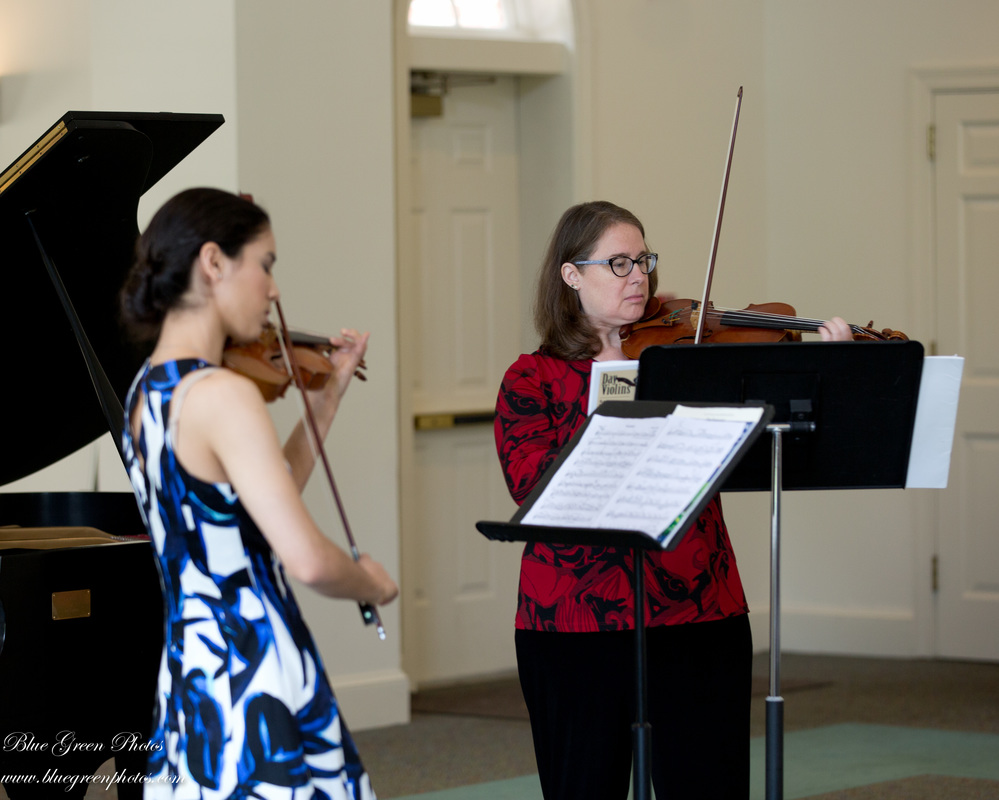
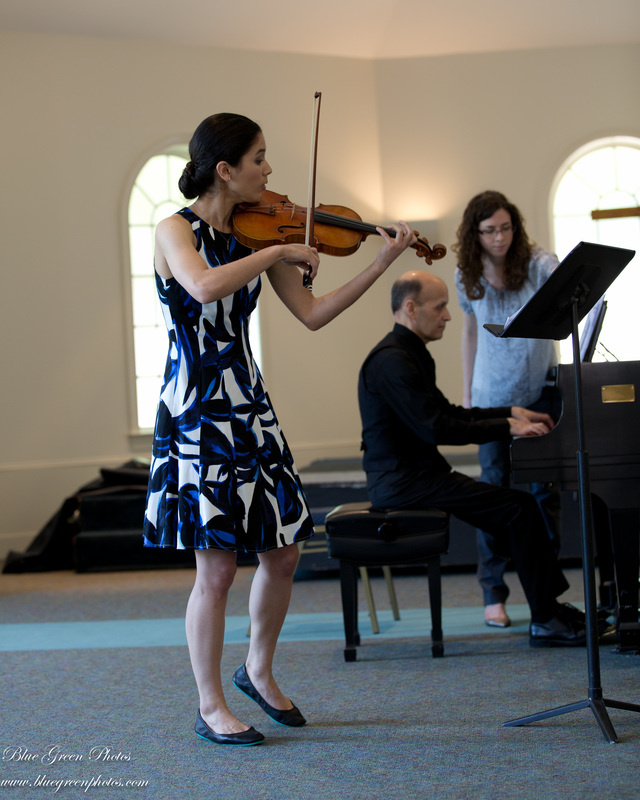
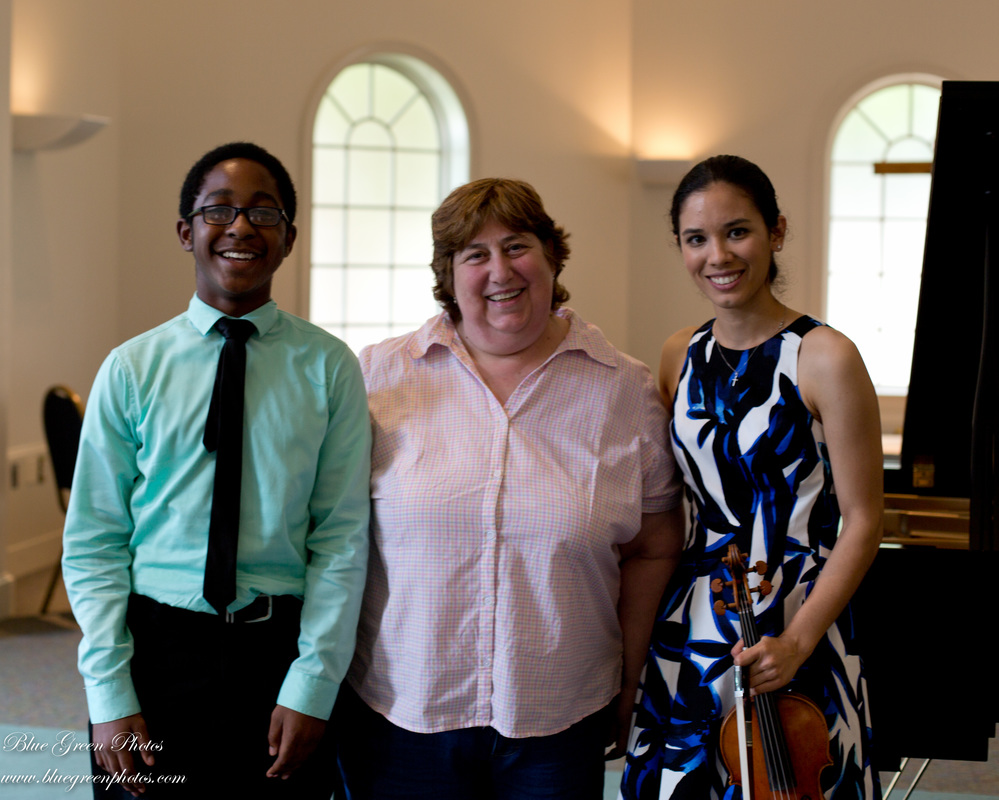
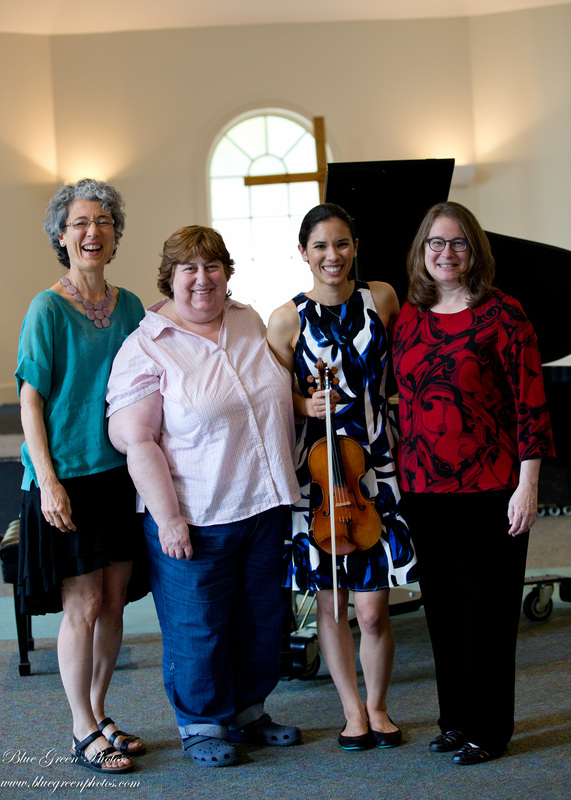
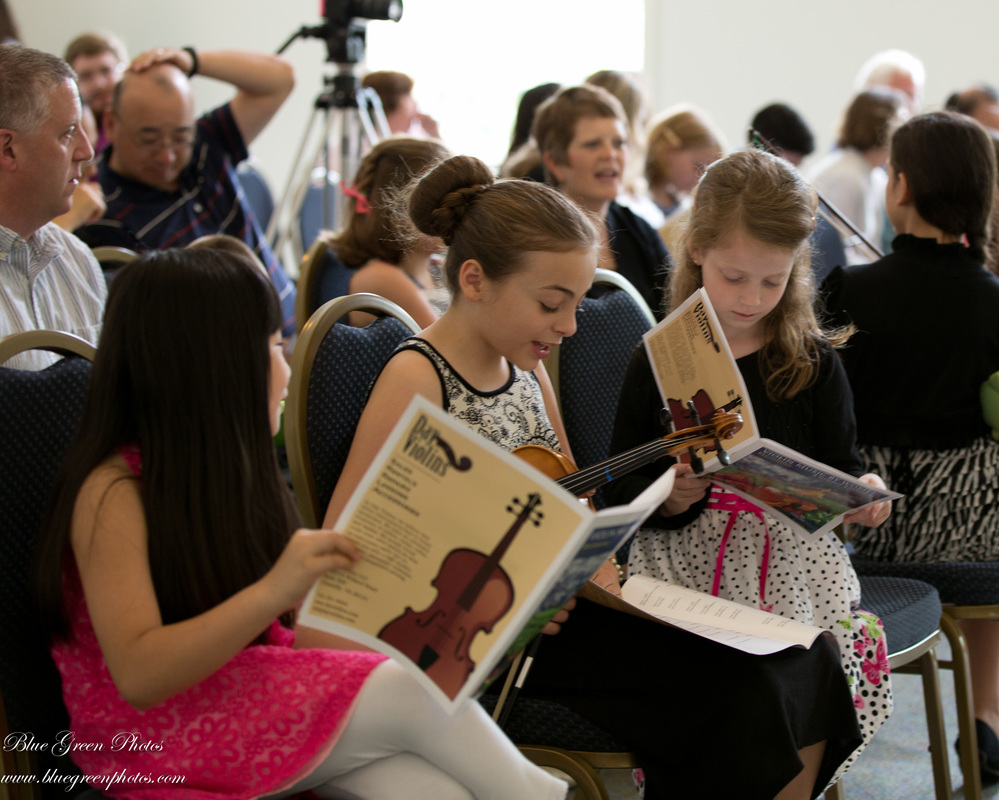
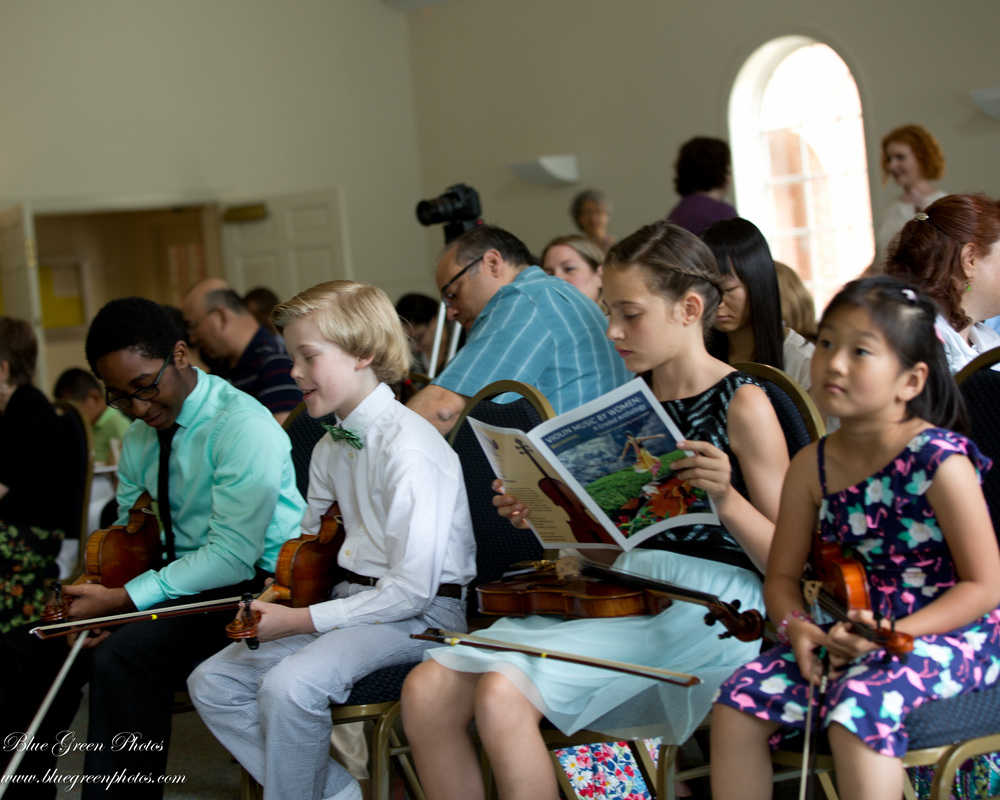
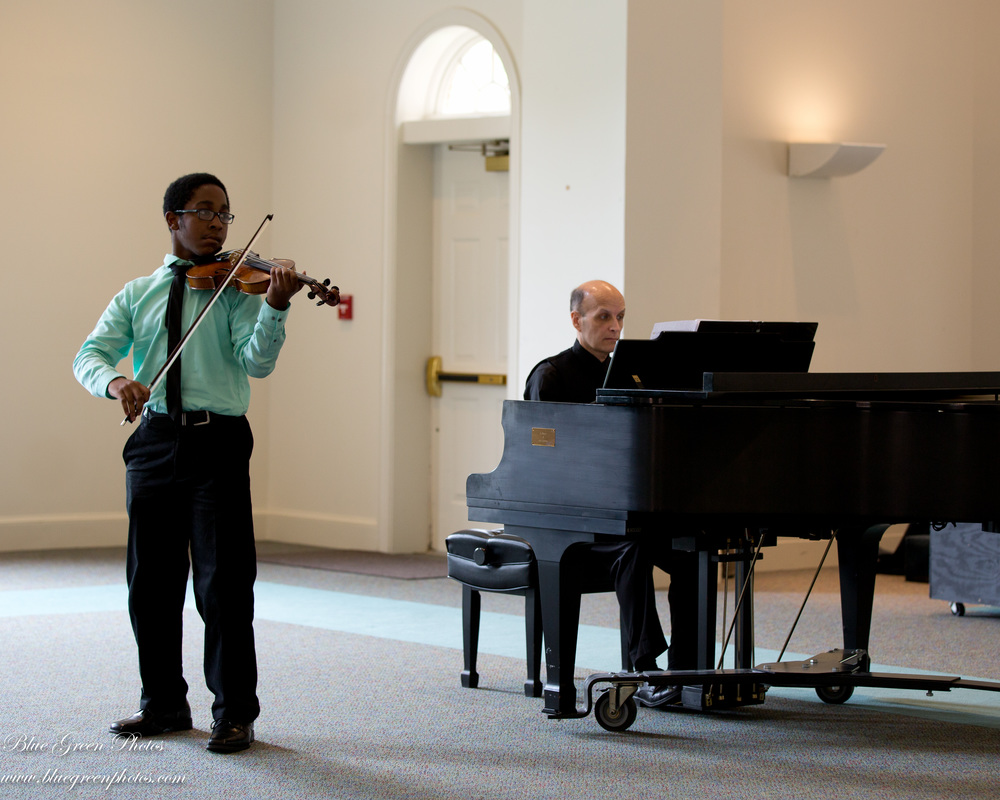
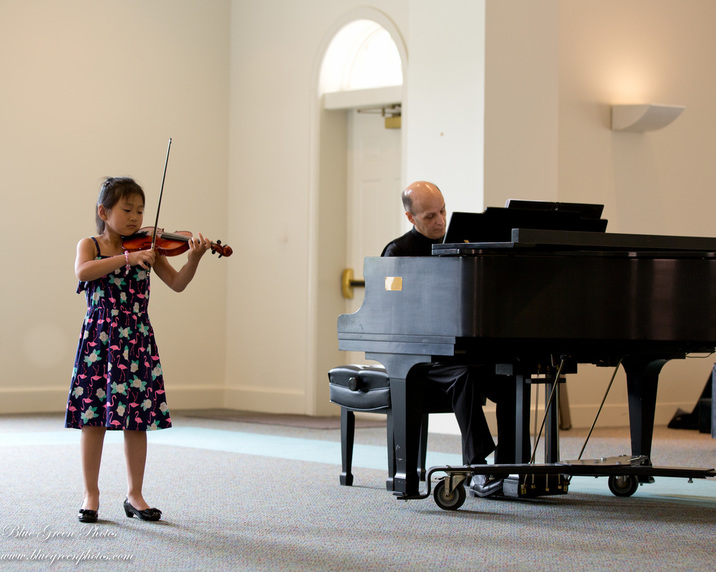
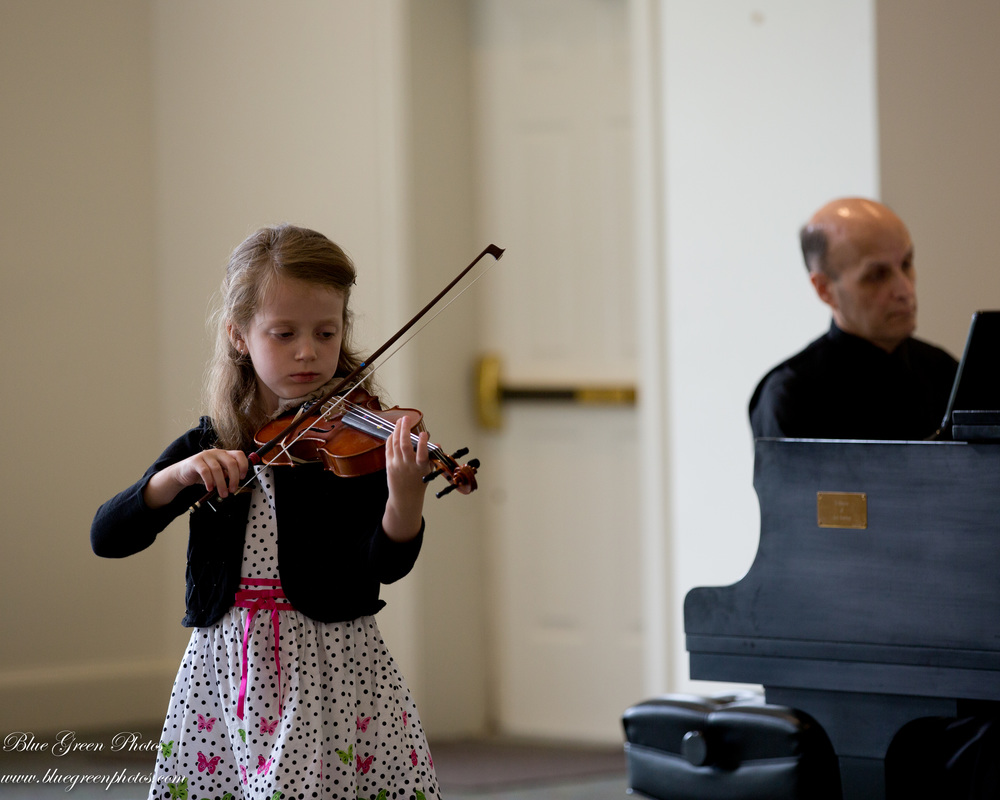
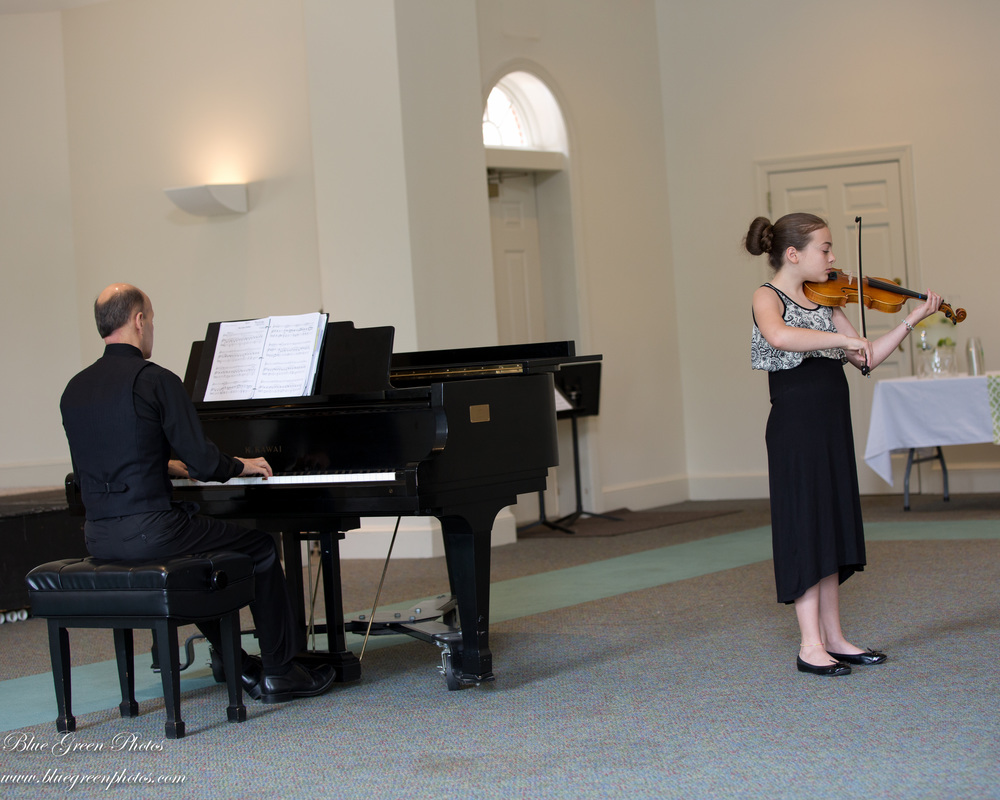
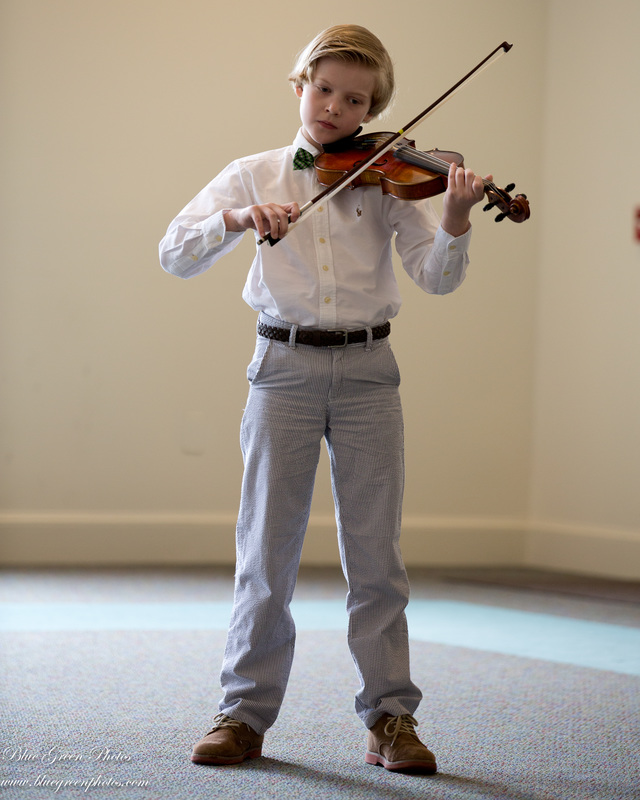
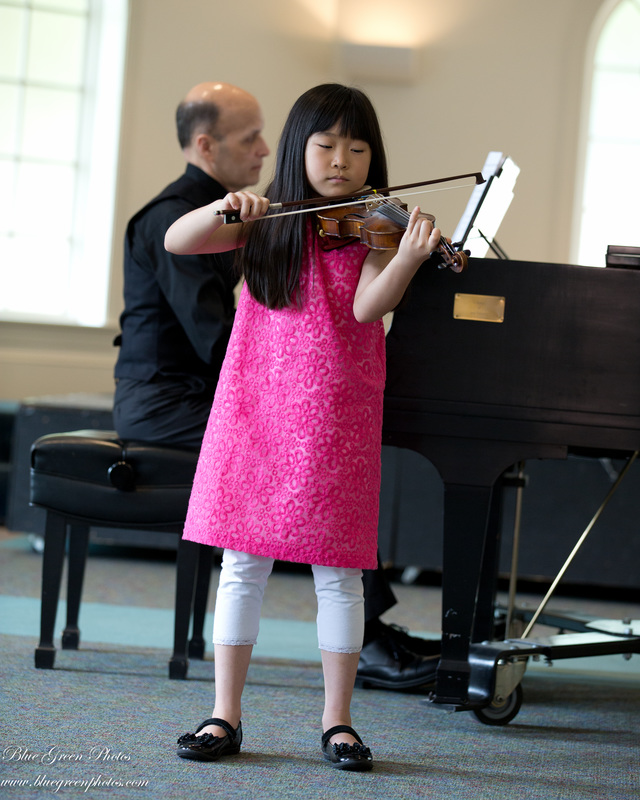
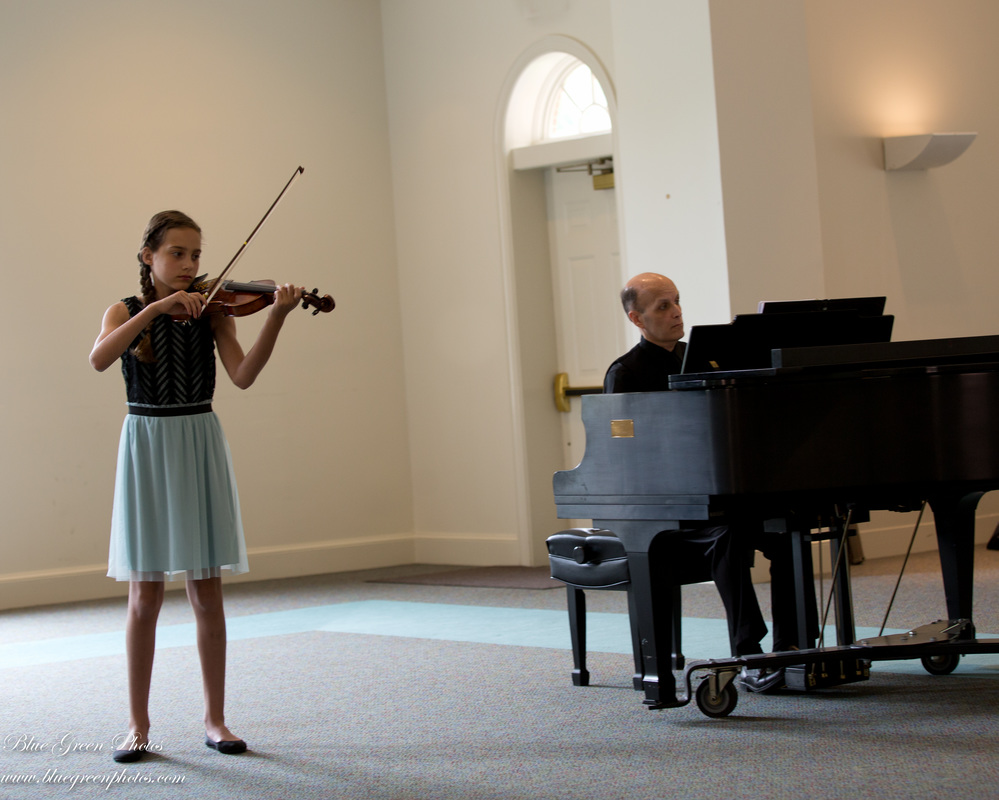
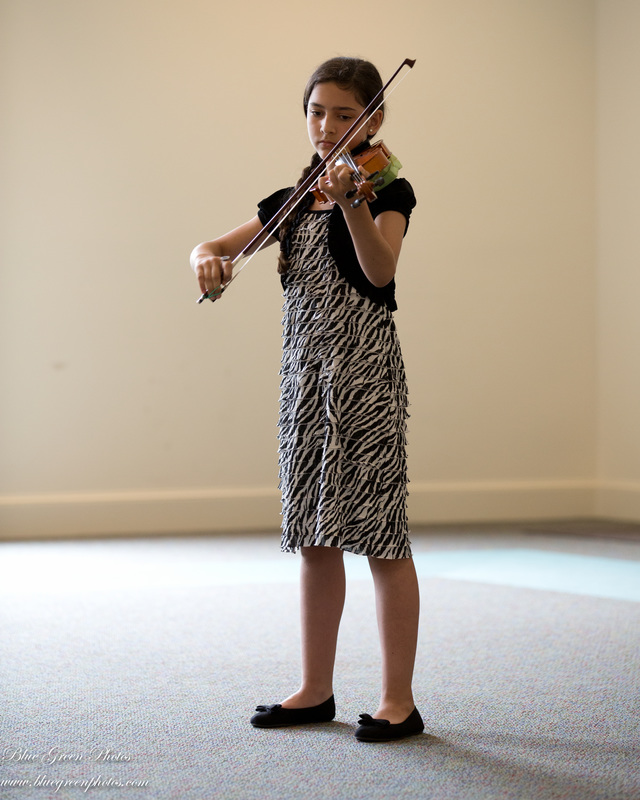
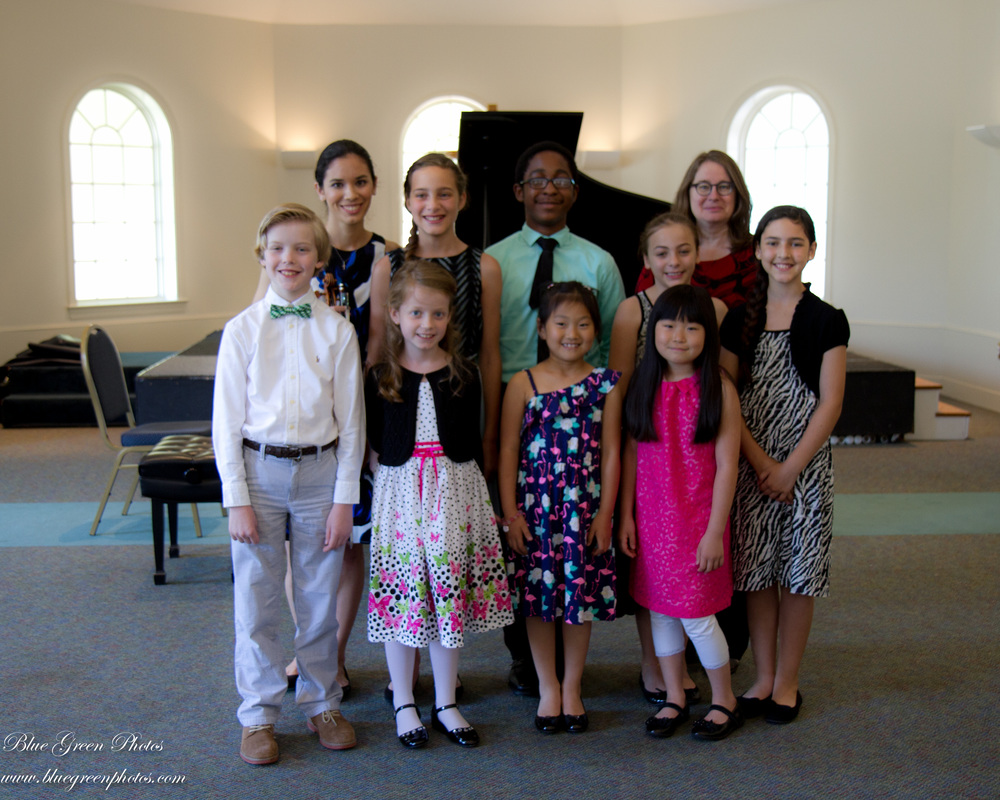
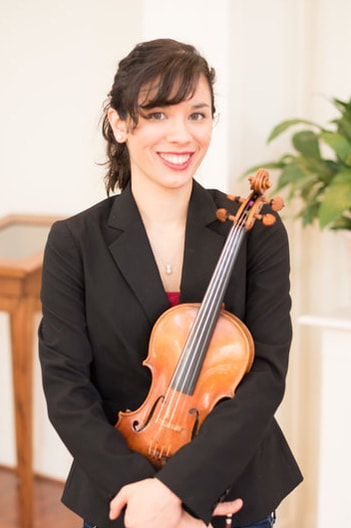
 RSS Feed
RSS Feed